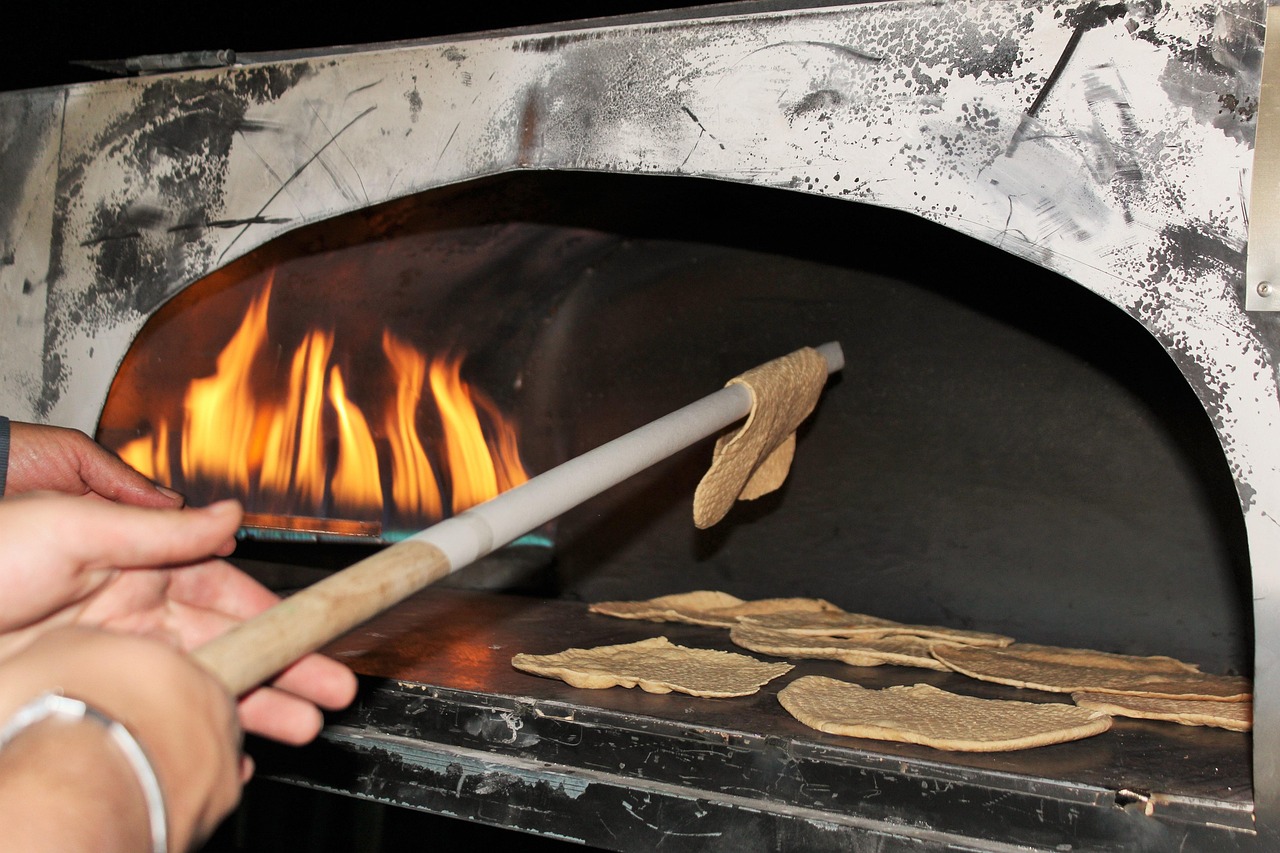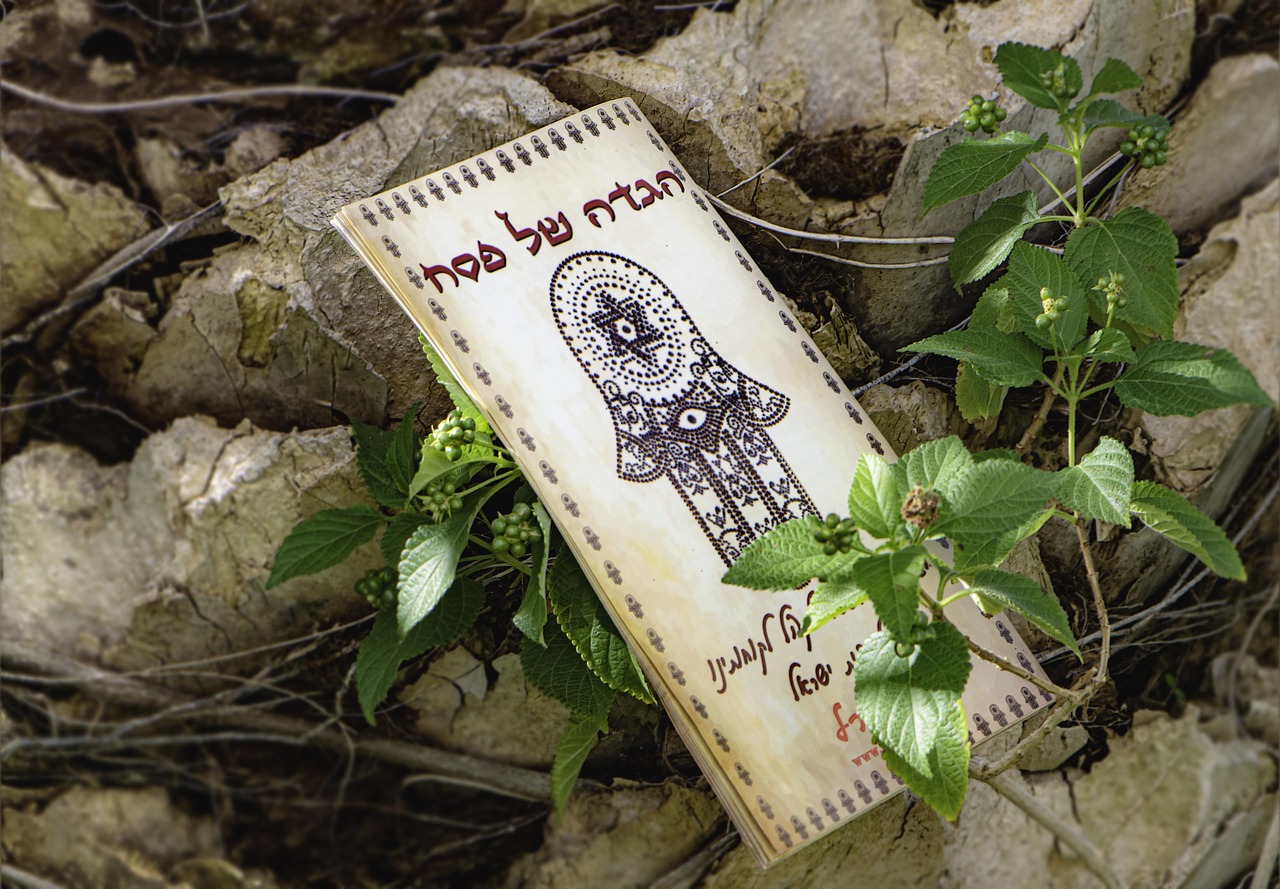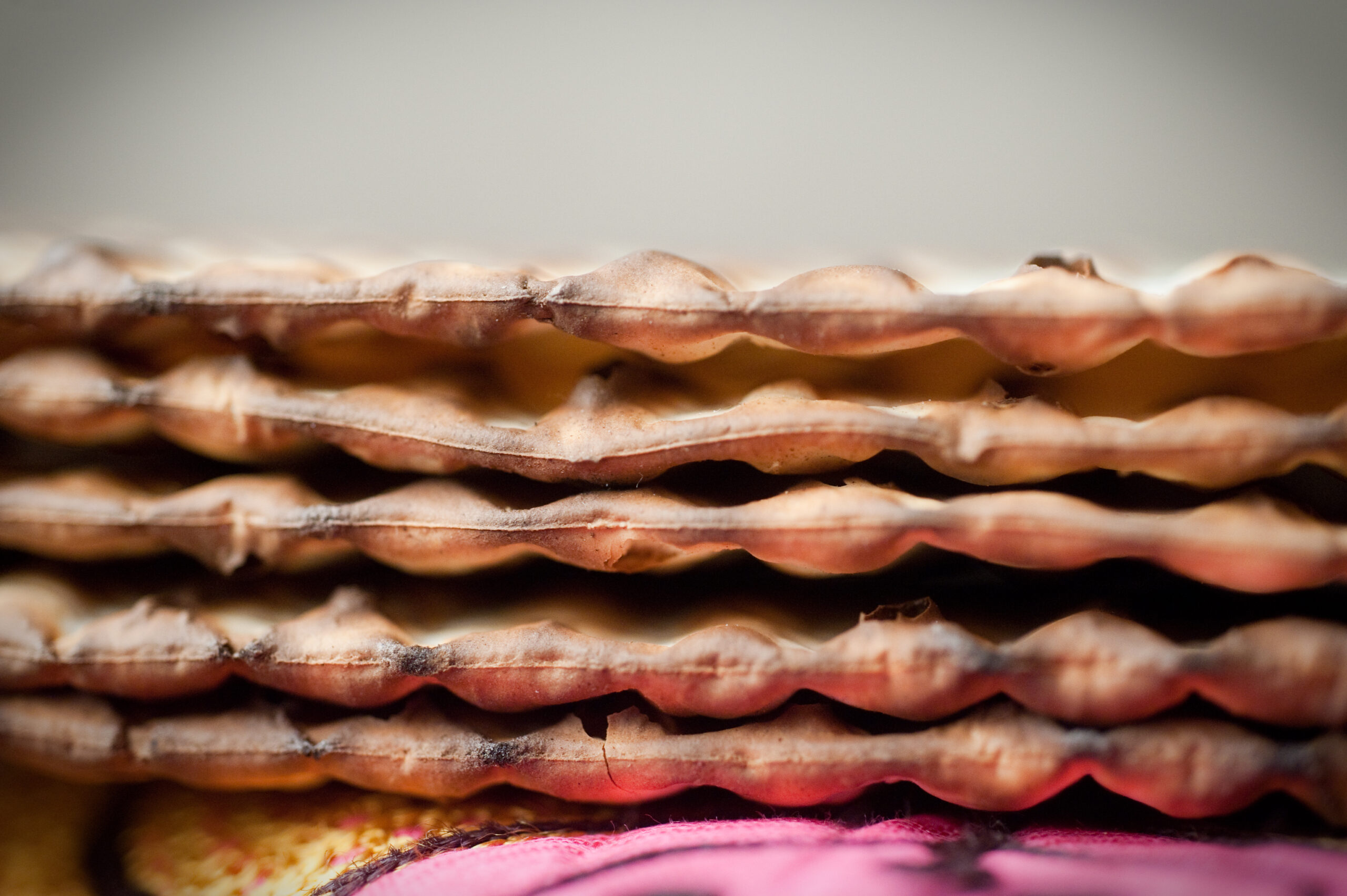Leader:
No prayer is recited before we break the middle matzah on our Seder plate. This is a silent, reflective act.
Reader:
For we recognize that, like the broken matzah, we are incomplete, with prayers yet to be fulfilled, promises still to be redeemed.
We hide part of this broken matzah and hope it will be found by the end our Seder meal.
For we recognize that parts of ourselves are yet unknown. We are still discovering what makes us whole.
We hide the larger of the two parts of the matzah.
For we recognize that more is hidden than revealed.
Group:
With the generations that have come before us, and with one another, our search begins.
From Miriam’s Tapestry: Passover Seder Haggdah, compiled by Shari Lash and Nonni Keynes. A Project of Tapestry, Calgary, Alberta, 1995.











